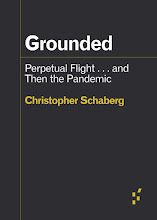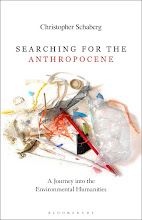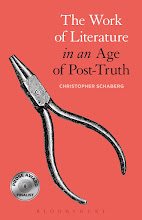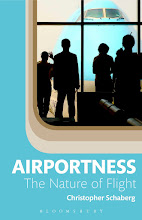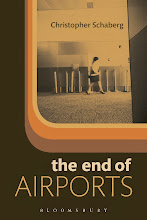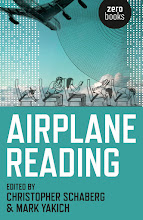I would like to write a longer post on this subject, but as I am currently on fellowship and working to finish my dissertation in the next couple months, I think that two brief quotations will have to suffice for now:
"Mr. Mody of the maritime bureau in London said there were currently 15 vessels being held by pirates off the coast of Somalia, involving 290 crew members." —NY Times, Pirates Free Tanker After Ransom
"The ship is the heterotopia par excellence. In civilizations without boats, dreams dry up, espionage takes the place of adventure, and the police take the place of pirates." —Michel Foucault, Of Other Spaces
Friday, January 9, 2009
Thursday, January 8, 2009
A Tall Order: Poetry Lesson for New Media Critique in a Composition Class
My concern in this post is to think about digital media as a way to mediate (if counter-intuitively) between the separate realms of literature and composition, a disciplinary divide that seems to me both rarefied as well as conceptually unhelpful. Online media forms offer both a new genre for creative (and, of course, consumer) expression, as well as an imperative for ever-more streamlined (if also endlessly citational) expository prose. Thus, something like literary analysis lends itself to the parsing of this media form, in both prose content matters and in spatio-aesthetic design. In other words, by adopting the methods and decelerated temporality of literary analysis, we might effectively gauge the formal dimensions of the relatively ‘new’ ways of writing extant online. To respond to the call that we need to teach students to critically read websites and other interactive objects of visual/mass culture, I want to suggest that our pedagogical material is nearer to hand than we might think. In short, and to put it rather provocatively, there is nothing like a poem to help one learn how to critically read websites. Poetry cannot help but deploy multimedia forms (think of how synaesthesia works) and rely on non-linear textual space (conjure a simple line or stanza break).
I would like to propose that self-aware formalist poetry reading might be geared toward consciously decelerated new media critique. Consider Langston Hughes’s “Theme for English B,” a literary text that is often strategically slid into the pages of composition anthologies. What is the function of a poem in a course on expository prose? How might this poem in fact offer ways to critically engage online media? How might a poetry lesson cause us to reflect on reading in the age of the Internet? Through a few preliminary remarks on the opening lines of this well-known poem, I hope to offer a few tentative—if also bold—answers to these questions.
Reading this poem with the Internet in mind, we might say that Hughes interrupts himself almost immediately with a ‘pop-up’ box of sorts:
In these lines, Hughes enacts the very sort of textual polysemy that Roland Barthes theorizes in his essay “From Work to Text.” Writing is always many writings, here reflected in a self-reflexive joke of sorts. In an understatedly postmodern turn, Hughes turns a writing prompt into the object of composition. One can see why this poem teaches particularly well in beginning composition courses, where the primary hurdle of writing seems to be the abysmal gap between life and reflection, or subject and object. How does one “just write” when there is an aporia between the subject position of the beginning writer and this reified object out there called Writing (or Barthes’s “Work”)? Hughes leaps over this hurdle conversationally, with a nod toward his instructor. And Hughes’s uses of enjambment and empty space to these ends seems to me to be useful in terms of questioning how we navigate the banally open Google Search page:

Here I would want to stress how “to Google” has become a verb both inviting and daunting, and how “to write” harbors a similarly vexed imperative in terms of the assumed epistemological position of the subject. For the Googler as well as for the writer, the horizon of knowledge must appear at once empty and potentially full beyond comprehension. One only has to “Start,” in the parlance of Microsoft.
I would like to propose that self-aware formalist poetry reading might be geared toward consciously decelerated new media critique. Consider Langston Hughes’s “Theme for English B,” a literary text that is often strategically slid into the pages of composition anthologies. What is the function of a poem in a course on expository prose? How might this poem in fact offer ways to critically engage online media? How might a poetry lesson cause us to reflect on reading in the age of the Internet? Through a few preliminary remarks on the opening lines of this well-known poem, I hope to offer a few tentative—if also bold—answers to these questions.
Reading this poem with the Internet in mind, we might say that Hughes interrupts himself almost immediately with a ‘pop-up’ box of sorts:
The instructor said,
Go home and write
a page tonight.
And let that page come out of you—
Then, it will be true.
I wonder if it’s that simple?
In these lines, Hughes enacts the very sort of textual polysemy that Roland Barthes theorizes in his essay “From Work to Text.” Writing is always many writings, here reflected in a self-reflexive joke of sorts. In an understatedly postmodern turn, Hughes turns a writing prompt into the object of composition. One can see why this poem teaches particularly well in beginning composition courses, where the primary hurdle of writing seems to be the abysmal gap between life and reflection, or subject and object. How does one “just write” when there is an aporia between the subject position of the beginning writer and this reified object out there called Writing (or Barthes’s “Work”)? Hughes leaps over this hurdle conversationally, with a nod toward his instructor. And Hughes’s uses of enjambment and empty space to these ends seems to me to be useful in terms of questioning how we navigate the banally open Google Search page:

Here I would want to stress how “to Google” has become a verb both inviting and daunting, and how “to write” harbors a similarly vexed imperative in terms of the assumed epistemological position of the subject. For the Googler as well as for the writer, the horizon of knowledge must appear at once empty and potentially full beyond comprehension. One only has to “Start,” in the parlance of Microsoft.
Subscribe to:
Posts (Atom)





